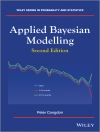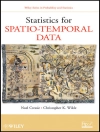Aside from distribution theory, projections and the singular value decomposition (SVD) are the two most important concepts for understanding the basic mechanism of multivariate analysis. The former underlies the least squares estimation in regression analysis, which is essentially a projection of one subspace onto another, and the latter underlies principal component analysis, which seeks to find a subspace that captures the largest variability in the original space.
This book is about projections and SVD. A thorough discussion of generalized inverse (g-inverse) matrices is also given because it is closely related to the former. The book provides systematic and in-depth accounts of these concepts from a unified viewpoint of linear transformations finite dimensional vector spaces. More specially, it shows that projection matrices (projectors) and g-inverse matrices can be defined in various ways so that a vector space is decomposed into a direct-sum of (disjoint) subspaces. Projection Matrices, Generalized Inverse Matrices, and Singular Value Decomposition will be useful for researchers, practitioners, and students in applied mathematics, statistics, engineering, behaviormetrics, and other fields.
Cuprins
Fundamentals of Linear Algebra.- Projection Matrices.- Generalized Inverse Matrices.- Explicit Representations.- Singular Value Decomposition (SVD).- Various Applications.
Despre autor
Haruo Yanai is an educational psychologist and epidemiologist specialized in educational assessment and statistics. While he was developing an aptitude test as part of his doctoral dissertation at the University of Tokyo, he began his pioneering work on unifying various methods of multivariate analysis using projectors. This work has culminated in his widely acclaimed book “The Foundations of Multivariate Analysis” (Wiley Eastern, 1982) with Takeuchi and Mukherjee. He has held a professorial position in the Research Division at the National Center for University Entrance Examinations and is currently a Professor of Statistics at St. Luke College of Nursing in Tokyo. He is a former President of the Behaviormetric Society and is currently President of the Japan Testing Society.
Kei Takeuchi is a mathematical statistician with a strong background in economics. He was a Professor of Statistics in the Faculty of Economics at the University of Tokyo, and after retirement in the Faculty of International Studies at Meiji Gakuin University (now emeritus at both universities). The main fields of his research include the theory of mathematical statistics, especially asymptotic theory of estimation, multivariate analysis, and so on. He has published many papers and books on these subjects in both Japanese and English. He has also published articles on the Japanese economy, impact of science and technology on economy, etc. He is a former President of the Japan Statistical Society and Chairman of the Statistical Commission of Japan. Yoshio Takane earned his Ph.D in quantitative psychology from the University of North Carolina in 1977. Since then he has been a Professor of Psychology at Mc Gill University, specializing in quantitative methodology. He has developed a number of techniques for data analysis such as nonlinear multivariate analysis (MVA), maximum likelihood multidimensional scaling, latent variable models, methods for contingencytable analysis, constrained principal component analysis and other structured MVA, and matrix theory associated with these developments. He has published widely in such journals as Psychometrika and Linear Algebra and Its Applications. He is a former President of the Psychometric Society.












